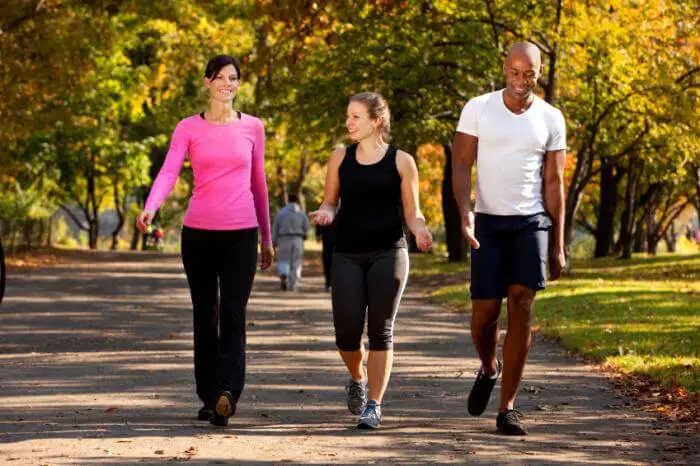Diabetes, either type 1 or type 2, is a serious medical condition which requires certain lifestyle changes in order to maintain the quality of life a patient had before diagnosis.
One of the requirements for better management of this disease is physical exercise.
During exercise organism will burn glucose (blood sugar) as primary source of energy. Blood sugar gets depleted rather quickly. Naturally, this will cause a drop in blood sugar levels. For a patient with diabetes this can be a very dangerous situation.
For more information refer to article on blood sugar levels on this link.
What can go wrong?
The minimum goal for diabetics is 15 minutes of exercise per day, ideally one hour. All forms of aerobic exercise such as walking, cycling or light jogging are acceptable as well as exercises for muscle building (for example weight lifting).

Patients with diabetes are usually familiar with the physiological effects of activity on their organism. Attention should be paid primarily to a drop in blood sugar levels (hypoglycemia). The amount of food and dose of medication must be adequate, or else hypoglycemia or hyperglycemia may occur during activity, both equally dangerous and potentially deadly conditions.
One of the consequences of diabetes is polyneuropathy – chronic ‘injury’ of nerves caused by reduced sensitivity to pain. Diabetic patients should therefore pay attention to the potential mishaps during activity – not only serious injury but also minor injury such as bruises as bruises are more prone to infections.
Patients should be well informed of the signs and symptoms of hypoglycemia. This is particularly important in patients with long history of diabetes as drop in blood sugar can not be detected quickly or cannot be detected early enough. Confusion, pallor, tremor, nausea and sweating are the most obvious signs.
How to act when blood sugar drops?
If you blood sugar drops significantly consume 1 oz (about 20 grams) of rapid sugar and then wait for about 15 minutes to feel the effect. Do not consume more as consuming more sugar will not quicken your recovery, the end result will be higher blood sugar levels.
What to take when Hypoglycemia strikes?
Consume rapid sugar, such as fruit juice or hard candy. Do not consume ice cream, cake or similar products as all these foods take longer to correct your condition and will result in higher blood sugar levels in the end.
Be aware:
- Do not continue to exercise when your are hypoglycemic as this might lead to severe reaction, or an accident, due to your coordination being impaired.
- After prolonged physical activity it can sometimes take up to 12 hours to feel the effect of hypoglycemia. Be prepared.









































